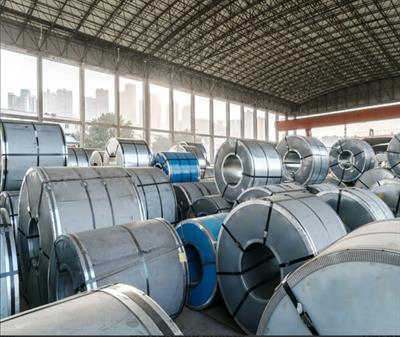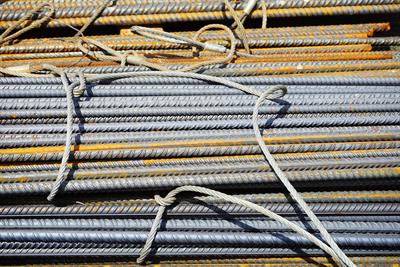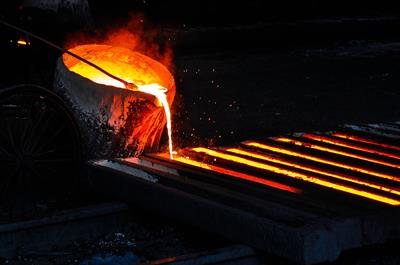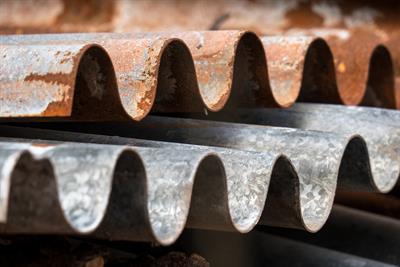
PUMPA - SMART LEARNING
எங்கள் ஆசிரியர்களுடன் 1-ஆன்-1 ஆலோசனை நேரத்தைப் பெறுங்கள். டாப்பர் ஆவதற்கு நாங்கள் பயிற்சி அளிப்போம்
Book Free DemoWhat is physical property?
A physical property is a property of matter that can be observed and measured without changing the sample's chemical identity.
(a). Physical state:

Solid iron coils
All metals are solids at ambient temperature except for Mercury and Gallium.
(b). Lustre:

Shiny gold metal
Metals have a high lustre (named metallic lustre).
(c). Hardness:

Hard iron metal rods
The majority of metals are tough and durable (exceptions: Sodium and Potassium can be cut with a knife)
(d). Melting point and Boiling point:

Highly melted metal
Metals usually have high melting and boiling points, and they evaporate only at high temperatures. (exceptions: Gallium, Mercury, Sodium and Potassium).
(e). Density:

High density metal used in train wheels
Metals possess high density (exceptions: Sodium and Potassium are less dense than water).
(f). Ductility:

Metal wire used in the bridge protection wall
Generally, metals are ductile. They are capable of being drawn into thin wires without breaking.
(g). Malleability:

Metal sheet used for roofing
Metals are usually malleable, i.e., metals can be beaten into thin sheets without cracking (except Zinc and Mercury).
(h). Conduction of heat and electricity:

Metal wire used in electricity
Metals are the best conductors of heat and electricity; silver and copper are particularly good in this (exception: Tungsten).
(i). Solubility:

Metal under the water does not dissolve
Metals do not usually dissolve in liquid solvents.